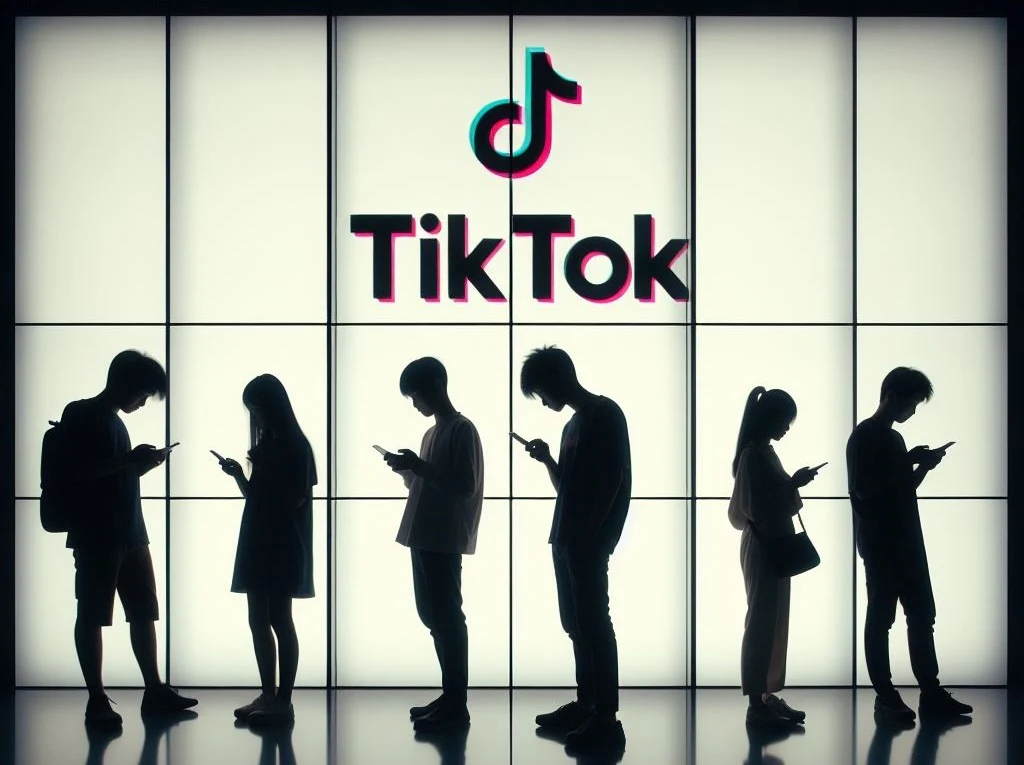A new study is published in BMC psychology that talks about the effects of TikTok over use on individuals. They have named the disorder for TikTok use as TikTok Use Disorder (TUD) where the personality traits and their depressive episodes intertwine. People who have lower self esteem and do not know how to control their emotions well are more likely to get this disorder. They become completely dependent on TikTok and as a result, become more depressed.
TikTok is a widely used app in the world and many people use TikTok the most among other social media effects. Many researches have been made about harmful effects of social media use but not many researches have been made about just the harmful use of TikTok on individuals. Christian Montag and Sebastian Markett, the researchers for this study, said that overusing social media hasn’t been categorized as a disorder yet but there are still discussions to make it as such. However, Gaming and Gambling Addiction are recognized as disorders in International Classification of Diseases-11(ICD-11) by WHO. That’s why we can use the examples of these disorders to make social media disorders too.
For this study, the researchers gathered 383 participants of ages 18 and up who were daily users of social media apps and TikTok. These participants were given questionnaires termed as TikTok Use Disorder-Questionnaire (TTUD-Q) that was made after putting Gaming Disorder Questionnaire as a base. Questions from Patient Health Questionnaire-8 (PHQ-8) and Big Five Inventory-10(BFI-10) were also added to figure out the depressive tendencies of the individuals.
The results of the questionnaire showed that most of the scores were in the lower range meaning and it was found that participants showed traces of traits like neuroticism, low conscientiousness, negative emotions and less disciplined behaviors. Many depressive symptoms also play an important part in TTUD. Even though these symptoms can be different according to the age, they are still present in TikTok addicts nonetheless. But the younger users are more likely to have TTUD than older people. This study can provide a framework for further studies on TTUD and that it should be recognized as a proper disorder by WHO.
Image: DIW-AIgen
Read next: Instagram, Photo Editing Apps Drive Desire for Cosmetic Surgery
TikTok is a widely used app in the world and many people use TikTok the most among other social media effects. Many researches have been made about harmful effects of social media use but not many researches have been made about just the harmful use of TikTok on individuals. Christian Montag and Sebastian Markett, the researchers for this study, said that overusing social media hasn’t been categorized as a disorder yet but there are still discussions to make it as such. However, Gaming and Gambling Addiction are recognized as disorders in International Classification of Diseases-11(ICD-11) by WHO. That’s why we can use the examples of these disorders to make social media disorders too.
For this study, the researchers gathered 383 participants of ages 18 and up who were daily users of social media apps and TikTok. These participants were given questionnaires termed as TikTok Use Disorder-Questionnaire (TTUD-Q) that was made after putting Gaming Disorder Questionnaire as a base. Questions from Patient Health Questionnaire-8 (PHQ-8) and Big Five Inventory-10(BFI-10) were also added to figure out the depressive tendencies of the individuals.
The results of the questionnaire showed that most of the scores were in the lower range meaning and it was found that participants showed traces of traits like neuroticism, low conscientiousness, negative emotions and less disciplined behaviors. Many depressive symptoms also play an important part in TTUD. Even though these symptoms can be different according to the age, they are still present in TikTok addicts nonetheless. But the younger users are more likely to have TTUD than older people. This study can provide a framework for further studies on TTUD and that it should be recognized as a proper disorder by WHO.
Image: DIW-AIgen
Read next: Instagram, Photo Editing Apps Drive Desire for Cosmetic Surgery

